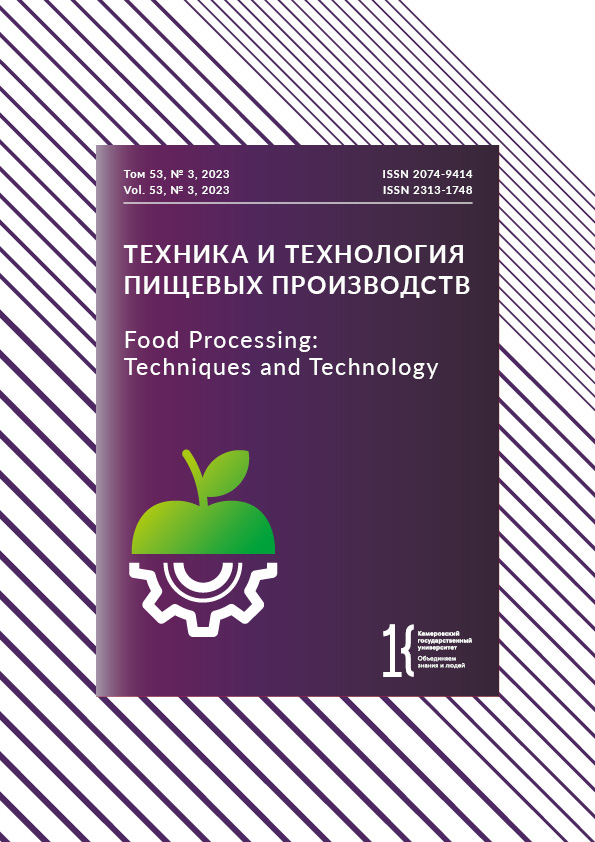Kemerovo, Russian Federation
Kemerovo, Russian Federation
Kemerovo, Russian Federation
Kemerovo, Kemerovo, Russian Federation
Kemerovo, Kemerovo, Russian Federation
Public catering has become an important healthy food provider in Russia. As a rule, this sphere is represented by small businesses with no experience in innovation. Their prospects for innovative development depend on the form of ownership, size, and target audience. The present research objective was to develop recommendations on how to restructure a public catering enterprise as part of an innovative development strategy. The study featured public catering enterprises together with their innovative potential, activities, and factors that contribute to or hinder their development. The innovative restructuring scenarios were based on the synthesis method. The authors developed a goal-centered classification which includes commercial and socially oriented public catering enterprises with their own advantages and disadvantages. The list of disadvantages includes decentralization, overstaffing, and multi-format, which make it difficult to introduce innovations and strategizing. The restructuring process requires a new management system optimized by specialists competent in the field of innovation, as well as a new matrix of strategic resources. An audit of public catering enterprises makes it possible to assess their competitiveness and strategic prospects. The current lack of personnel with experience in innovations hinders the development of the industry. Universities and regional innovation infrastructure should provide public catering with specialists in innovation management.
Public catering, innovation, restructuring, personnel, strategy
1. Gusev Yu, Polovova T, Pinsky A. Digital innovations of public catering enterprises: the need and opportunities. SPBPU IDE '21: Proceedings of the 3rd International Scientific Conference on Innovations in Digital Economy; 2021; St. Petersburg. St. Petersburg: SPBPU; 2021. p. 356-362. https://doi.org/10.1145/3527049.3527087
2. El Bilali H, Strassner C, Ben Hassen T. Sustainable agri-food systems: Environment, economy, society, and policy. Sustainability. 2021;13(1). https://doi.org/10.3390/su13116260
3. Borsellino V, Schimmenti E, El Bilali H. Agri-food markets towards sustainable patterns. Sustainability. 2020;12(6). https://doi.org/10.3390/su12062193
4. Belyaeva M, Kitova O, Popov A, Chernikova E. Innovative technologies in food production processes. IOP Conference Series: Earth and Environmental Science. 2021;937. https://doi.org/10.1088/1755-1315/937/3/032044
5. Thomlinson NB. Methods of assessment and forecasting of innovative development in the USA: Regional analysis. American Economic Journal: Macroeconomics. 2020;10(4):170-192.
6. Yeates NH, Garner BJ. Management of innovative development of States and regions of the United States: A systematic approach. Administrative Science Quarterly. 2017;62(3):420-442.
7. Kottman GA, Harper RZ. Distribution of scientific personnel across the United States: Statistical analysis of social and economic indicators. American Economic Review. 2019;109(3):442-468.
8. Kurakin MS, Ozherel’eva AV, Motyreva OG, Krapiva TV. A new approach to the development of food products. Food Processing: Techniques and Technology. 2021;51(3):434-448. (In Russ.). https://doi.org/10.21603/2074-9414-2021-3-434-448
9. Novoselov SV, Mayurnikova LA. Innovative project management: development and practical implementation of innovative projects in the field of nutrition. Parts I and II. St. Petersburg: GIORD; 2021. 400 p. (In Russ.).
10. Komkov NI, Kulakin GK. Effect of innovative and technological activity of organizations on the volume of production of innovative goods and the growth of labor productivity. Studies on Russian Economic Development. 2020;181(4):29-40. (In Russ.).
11. Komkov NI. Scientific and technological development: limitations and opportunities. Studies on Russian Economic Development. 2017;164(5):11-21. (In Russ.).
12. Gornikov NV, Mayurnikova LA, Novoselov SV, Krapiva TV, Koksharov AA. Innovative environment in public catering. Food Processing: Techniques and Technology. 2022;52(1):70-78. (In Russ.). https://doi.org/10.21603/2074-9414-2022-1-70-78
13. Kartashova EN, Abramova EYu. Assessment of enterprise''s innovative potential. Economy and Business: Theory and Practice. 2018;(11-1):117-121. (In Russ.). https://doi.org/10.24411/2411-0450-2018-10128
14. Smerichevska S, Miahkykh I, Yeletskykh S, Borysova S, Bryzhnychenko V. Financial and economic narratives for evaluation of innovative potential of enterprises. Naukovyi Visnyk Natsionalnoho Hirnychoho Universytetu. 2022;(1):145-152.
15. Dolinskaya AYu. Methodology of the estimation of the innovative potential of the enterprise based on the integrated indicator. Russian Journal of Entrepreneurship. 2018;19(5):1723-1738. (In Russ.). https://doi.org/10.18334/rp.19.5.39061
16. Abel ZT. Innovation potential of individual states of the Midwest. Journal of Economic Perspectives. 2017;31(1):177-208.
17. Bogge DS. Approaches to the analysis of innovation processes in the North-East of the United States. American Economic Review. 2018;108(9):1214-1237.
18. Rakhimzoda MS. Restructuring of enterprise management systems and the algorithm of its implementation. State Management. 2021;50(1):88-97. (In Russ.).
19. Volotskoy AA. Restructuring as a optimization mechanism of enterprise activity. Economical and Social-Humanitarian Research. 2021;29(1):6-10. (In Russ.).
20. Ivershin VS. The development of the US economy. Relevant issues of scientific and practical activities: Proceedings of the International Scientific and Practical Conference; 2021; Kazan. Kazan: NITS Vektor razvitiya; 2021. p. 201-204. (In Russ.).
21. Barsukova MN, Bendik NV. Regional innovative training area of higher education staff for digital transformation of agriculture in the Irkutsk region. Actual Issues of Agrarian Science. 2021;(40):44-53. (In Russ.).
22. Bogdanova EL, Brovka GM, Maximova TG, Nikolaev AS. Digital culture, skills of innovative entrepreneurship and intellectual property management: upcoming competences. Innovations. 2019;252(10):101-109. (In Russ.).
23. Trifonova NV, Vlasova MS. Modern educational technologies in assessing the competence of engineering personnel. Innovations. 2021;270(4):74-80. (In Russ.). https://doi.org/10.26310/2071-3010.2021.270.4.010











